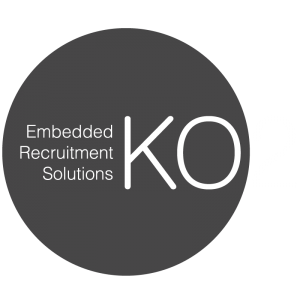Programming languages are the basis on which millions of products and processes that we use in our everyday lives function. Everything from complex security systems right down to the appliances in our homes use code that has been written in a variety of programming languages, and a huge proportion of engineering jobs have at least some crossover with writing, developing or designing hardware that uses software to run.
C# is quite a modern programming language that was only developed in 2000 and has quickly gained popularity for its style and range of uses. Software, firmware and embedded systems engineers all will benefit from having an understanding of the C# language and its applications, particularly if they work on developing the kind of web applications that other languages can’t cater to.
Whether you’re a software engineer wanting to expand their skill set or an employer looking to hire develops fluent in C#, understanding what it is and how it works is very useful. In this article, we cover the history of C#, its uses and applications, and answer some of the frequently asked questions around the programming language.

Introduction to C#
C# is a modern, general-purpose programming language that belongs to the family of C-derived languages like C++ and C, as well as being quite similar to Java and JavaScript. It’s a high-level, evolving coding language that was developed in the last twenty years to allow programmers to create software and applications that will still be applicable for another twenty years in the future.
Originally designed by developers at Microsoft, C# is a scalable and versatile language that can be used in both the Windows .NET framework and many other open-source platforms. It is type-safe, object-orientated and component-oriented, and is used by a range of modern-day developers on a variety of projects.
What Is C# Used For?
C# is a very versatile language, but is mainly used for developing web-based applications thanks to its features that make it ideal for building interactive environments. The fact that the language is object-orientated means that it is commonly chosen to build websites that run very efficiently, can be scaled up without too much effort, and are easy to maintain or debug.
The simplicity and readability of C# mean that it is used by programmers with a range of abilities to create all kinds of software that can be run on the majority of platforms. Its origins in Microsoft mean that it is frequently used to create programs for Windows, but is not limited to this operating system.
The three most common uses for C# are Windows applications, website development and game development. It can also be used to create mobile applications, IoT software, AI systems and a range of backend services.
History of C#
C# was developed at Microsoft by Anders Hejlsberg and a team of other developers in the early 2000s. It’s one of the youngest programming languages to have such a large following and community of enthusiasts and is currently in its ninth version.
The origins of C# are in the fact that demand was increasing for languages that web applications could be developed in, and in some cases C++ didn’t provide all the necessary functions. It takes many of the best features of Java and C++ and offers a similar language that is much better suited to fast software development and creating interactive online environments.
C# was also created within Microsoft’s .NET framework initiative, which is the company’s implementation of the common language infrastructure (CLI). This allows for language interoperability and uses an extensive array of libraries that are seamlessly integrated with the languages used in the framework like C#.
C# Version 1.0
The original version of C# was a very basic programming language that looked very similar to Java. It included features such as classes, structs, statements, attributes, interfaces and events.
C# Version 1.2
This update of the original version of C# was released with Visual Studio .NET 2003. It included a few minor changes to the language, most notably that code generated in a ‘foreach’ loop was called Dispose on an IEnumerator.
C# Version 2.0
C# 2.0 was released in 2005 and included new features such as generics, anonymous methods, iterators, partial types and nullable value types. Static classes, getter and setter accessibility, delegates and delegate inference were all updated, and the code became a lot more readable.
C# Version 3.0
C# Version 3.0 was the release that really put it on the map as a versatile and modern programming language, with several major new features including anonymous types, expression trees and implicitly typed local variables. It was here that the groundwork was laid for developing C# into a hybrid language that is not only object-orientated but also functional.
C# Version 4.0
Version 4.0 of C# had less of an impact than the version that came out before, with fewer new features including dynamic binding and generic covariant and contravariant. A ‘dynamic’ keyword was also introduced, which allowed programmers to create constructs in a similar way to what you can do with dynamic languages.
C# Version 5.0
Released with the new version of Visual Studio in 2021, C# Version 5.0 most notably included the new concept of the ‘async’ and ‘await’ model for asynchronous programming.
C# Version 6.0
The new features included in C# Version 6.0 were less dramatic and groundbreaking than those from previous releases, but worked overall to make coding in the C# programming language much more productive. Features like auto-property initializers, static imports, string interpolation and exception filters all made the code more terse and readable, which increased its popularity among beginner programmers.
C# Version 7.0
The new features released in 2017 with C# Version 7.0 continued the trend of working to make the code even cleaner and neater so that it was easier to read and write. These included pattern matching, out variables, local functions and throw expressions, broadening how the language could be used.
C# Version 7.1
This update of Version 7.0 began releasing ‘point releases’, along with introducing new compiler behaviour and three new language releases.
C# Version 7.2
This update added several more new features to the language, such as non-trailing named arguments and conditional ref expressions.
C# Version 7.3
The C# Version 7.3 release had two key themes with the features that it introduced; enabling safe code to be as performant as unsafe code and then just providing small improvements to older features. Some of these features tied to safer code included being able to access fixed fields without pinning, using more generic constraints and reassigning ref local variables.
C# Version 8.0
This release specifically targeted .NET Core, with a huge number of new features including several pattern matching enhancements, static local functions and asynchronous streams.
C# Version 9.0
The most recent version of the C# language came out in 2019 along with .NET 5. It includes new enhancements such as the ability to simplify top-level statements, expanding pattern-matching capabilities and adding functionality to code generators.
What Can You Do With C#?
Whilst there are specific types of programming that are best suited to the C# programming language, the range of different C# uses is vast. Its versatility comes from the fact that it is a general-purpose coding language and also that it can be run on open source platforms.
Some of the most common things you can do with C# include:
- Building and developing websites on the .NET platform
- Creating web applications
- Building applications specifically for Windows operating systems
- Developing backend services
- Building apps for IoS, Android and Windows devices
- Writing code for web services and web API
- Building video, mobile and computer games
- Creating software for blockchains and distributed ledger technology
- Writing programs for IoT devices


How to Use C#
Using C# requires an understanding of how to code in the language. To start with, you’ll have to teach yourself the basics of writing in the C# language, which is possible through a variety of different online tutorials and in-person teaching sessions, depending on whether you’re studying coding as part of an educational qualification.
The good news is that C# is notoriously quite an easy language to get to grips with, especially if you have experience coding in C, C++ or Java because of their similarities. The learning curve with this language isn’t as steep as with some of the others, but it’s an excellent one to get to grips with if you’re a beginner.
To begin using C#, you’ll need both an IDE and the .NET Framework Windows platform or another compatible, open-source platform. You can also just start writing the code in a text editor, but you won’t be able to run it without a compiler.
Start slow when it comes to learning the C# fundamentals and gradually build on your knowledge as you gain confidence. The community of developers who use this language is very large, so there is a lot of support available out there for beginners who are looking for help.
Frequently Asked Questions About C#
What is the difference between C# and C++?
The key difference between C# and C++ is that C# is a component-orientated and object-orientated language, whilst C++ is just an object-oriented language. C# also does not use pointers and C++ can use them anywhere in code, and C# automatically handles memory management whereas memory has to be handled manually when programming in C++.
What is a constructor in C#?
In C#, a constructor is called whenever a class or a struct is created. It enables you to limit instantiation and set default values, which means that the code is flexible and easy to read.
What is polymorphism in C#?
Polymorphism in C# is the ability of different types of objects within the code to provide unique interfaces that allow for different implementations of methods, redefining methods in derived classes. It is most commonly used when the way an object behaves when responding to a call to its method members is determined based on its type at run time.
What is a namespace in C#?
A namespace in C# is a ‘named space’ where an application resides. They are frequently used to give the code’s compiler context for the named information in the program that has been written in C#, and also to ensure that the application you have created doesn’t occupy any names in existing applications.
Summary
If you’re a developer or an employer who produces applications and software for Windows operating systems then C# is an incredibly useful skill to have in your arsenal. It’s a relatively simple language to understand and the applications are hugely varied, with plenty of software developers for IoT devices starting to favour it to write the code for the products they help create.
If you’re looking for a recruitment partner who knows the industry inside-out and can help find people with the skills and knowledge of programming languages like C#, get in touch and find out more about what our team can do for you.







